#Luis Planas
Explore tagged Tumblr posts
Text
El Gobierno impulsará la actualización del comercio exterior como sector estratégico
El ministro de Política Territorial y Memoria Democrática, Ángel Víctor Torres, y el ministro de Agricultura, Pesca y Alimentación, Luis Planas, participan este martes 2 de julio en las primeras jornadas nacionales sobre controles oficiales en el tráfico internacional de mercancías, destinadas a potenciar un sector estratégico para la economía española como es el comercio exterior. Estas…

View On WordPress
0 notes
Photo






Zoot Suit: on the night before his Navy enlistment, Henry Reyna & his fellow pachucos are framed for a murder at the Sleepy Lagoon. Based on the dynamic Broadway musical, Luis Valdez’ cinematic adaptation covers the real life trial that would become a pivotal piece of the Chicano Movement!
#scenes#musicals#zoot suit#looks#edward james olmos#daniel valdez#lupe ontiveros#tony plana#luis valdez#poc#1980s#1940s
25 notes
·
View notes
Text




Through the Years → Felipe VI of Spain (2,762/∞) 18 March 2022 | King Felipe VI of Spain, the President of the Xunta, Alberto Núñez Feijoo, Queen Letizia of Spain and the Minister of Agriculture, Livestock and Fisheries, Luis Planas attend a funeral in memory of the fishermen of "Villa De Pitanxo" in Marin, Pontevedra, Spain. The religious ceremony, officiated by Archbishop Julián Barrio, is held at the Templo Nuevo de Marín to remember the 21 deceased from the Galician fishing vessel 'Villa de Pitanxo', sunk on February 15 450 kilometers east of Newfoundland, Canada. (Photo by EFE/ Lavandeira - Pool/Getty Images)
2 notes
·
View notes
Text

Les États-Unis et les 12 pays suivants ont tous signé un accord qui, en pratique, détruira l’agriculture mondiale tout en ouvrant la voie à la famine et à la famine à l’échelle mondiale :
Allemagne, Argentine, Australie, Brésil, Burkina Faso, Chili, Espagne, Équateur, Panama, Pérou, République tchèque, Uruguay
Une perte de production de viande en Australie, au Brésil et aux États-Unis suffirait à elle seule à affamer d’innombrables personnes, sans parler de tous les autres aliments élevés et cultivés dans ces trois pays.
Citant le « changement climatique » et le « réchauffement climatique » comme raisons pour lesquelles des mesures aussi drastiques doivent être prises, les mondialistes derrière l'escroquerie climatique poussent l'idée selon laquelle l'agriculture, y compris l'élevage, doit cesser afin d'empêcher les flatulences animales de réchauffer l'environnement. .

"Je suis heureux de constater l'engagement commun de la communauté internationale à atténuer les émissions de méthane provenant de l'agriculture comme moyen d'atteindre les objectifs que nous avons signés dans l'Accord de Paris sur le climat", a déclaré Luis Planas, ministre espagnol de l'Agriculture, de la Pêche et de l'Alimentation. dans un rapport.
Marcelo Mena, PDG du Global Methane Hub, est bien sûr d’accord.

"Les systèmes alimentaires sont responsables de 60 pour cent des émissions de méthane", a expliqué Mena dans un communiqué.
2 notes
·
View notes
Text
🤣🤣🤣 NOMBRES CON APELLIDOS GRACIOSOS Y ORIGINALES 🤣🤣🤣
PUEDEN AÑADIR LOS QUE CONOZCAN 🤣🤣🤣 :
Luz Cuesta Mogollón
Grato Amor Jurado
Antonio Arrimadas Piernas
Eva Fina Segura
José de la Polla
Rosario del Cura Sacristán
Dolores Pecho Barba
Ana Púlpito Salido
Alfonso Seisdedos Pies Planos
José Sin Mayordomo
Dolores Fuertes de Barriga
Miguel Marco Gol
Juan Estan Camino
Luis Gordo de Día
Natividad Belén Santamaría
Fermín Gran Larga
Susana Braga Palomino
Emiliano Salido del Pozo
Amparo Loro Raro
Perfecto Ladrón Honrado
Florentina Caldito Blanco
Martín Cabezón
Rafael Nieto de Dios
Elvia Ratón Calvo
Aitor Menta
Pere Gil
Rey Follador
Armando Bronca Segura
Domingo Díaz Festivo
Román Calavera Calva
Rosa Cortada del Rosal
Castro Mascota
Sonia Vieja Alegre
Pascual Conejo Enamorado
Juan Macho Seco
Antonio Comino Grande
Ana Mier de Cilla
Francisco Tenedor Cuadrado
Eusebia Tetas Planas
#apellido#jajaja#palabras#citas#frases#escritos#escrituras#notas#textos#surname#funny#memes#words#quotes#citas en español#phrases#one piece#starfield#spanish#cringe#gay#lol#elden ring#red white and royal blue#heartstopper#feminism#queer#otoño#autumn#fall
4 notes
·
View notes
Text
Danny shared some screen shots and the Instagram handle for his new short film Unión de Reyes!
Unión de Reyes is a short film about a son discovering his father’s biggest secret. It’s Written and Directed by Danny Pino.
The short film features
Danny Pino as David de Armas
Lilly Pino as Monica de Armas
Tony Plana as Jorge de Armas
Oscar Torre as Marcial Santiago
Bertila Damas as Madrina Luz Martinez
Luis Bofill as Guillermo Bahos
Written and Directed by Danny Pino
Produced by Eric Gaunaurd and Paradiso Pictures
Cinematographer - Randy Valdes
Production Designer - Peter Parente
Costume Designer - Naty Pineda
Editor - Alex Merkin
Composer - Carlos Alvarez
Post-Production Supervisor - Craig Yahata
Casting - George Ortiz
You can find the official website of Unión de Reyes here. Which features songs from PinoGrillo (Paco Pino).
Photos Via Instagram: uniondereyesfilm

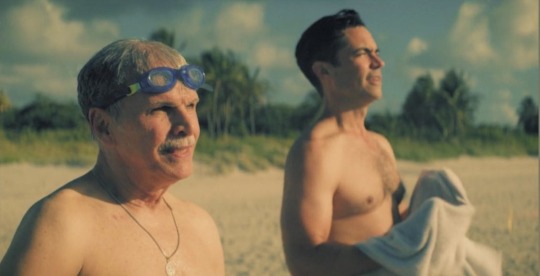
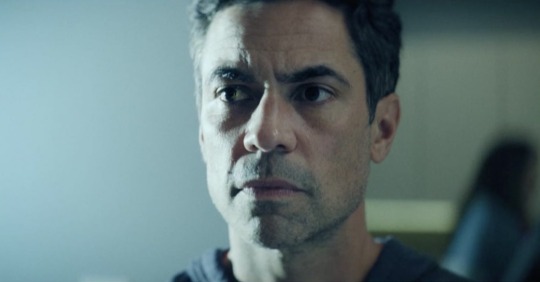
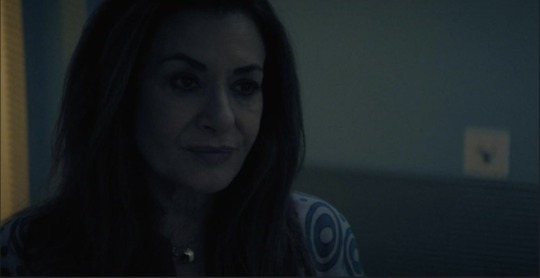
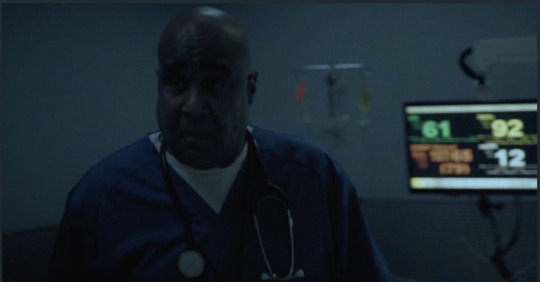
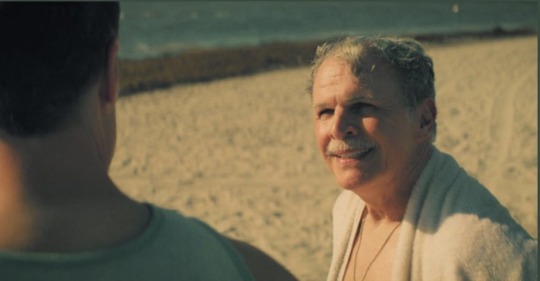
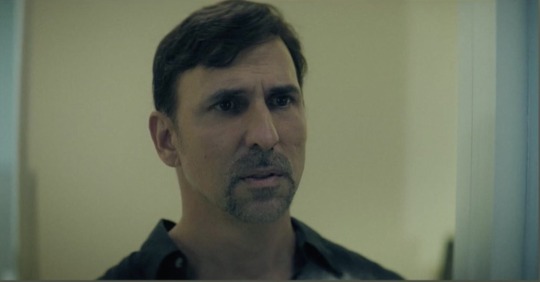
#union de reyes#danny pino#Danny’s project!#Lilly Pino#she’s beautiful#ugh theyre in it together too?!#I can’t freaking wait#short film#Paco Pino#pinogrillo
4 notes
·
View notes
Text
Llega la hora de Luiz Junior en el Villarreal
It had to be due to a circumstance as unpleasant as it was injury to his position partner, (Diego Conde)but tomorrow will be Luis Junior’s long-awaited chance to prove himself as a goalkeeper at Villarreal The most expensive goalkeeper in the history of the La Plana clubwho last summer paid “Famalicao Portugese” the not insignificant amount of 12 million euros for him. after five months in the…
0 notes
Link
0 notes
Text
Poland joins protests against EU-Mercosur trade deal
Poland opposes the EU-Mercosur free trade agreement with South American countries in its current form, the country’s prime minister said on Tuesday, joining France in opposing an agreement that European farmers say would expose them to unfair competition.
The contours of the agreement with the Mercosur bloc were agreed in 2019, but some EU countries have blocked its further development because of competition concerns. Polish Prime Minister Donald Tusk told reporters ahead of a cabinet meeting:
“Poland will not accept… the free trade agreement with the South American countries, that is, the Mercosur bloc, in this form.”
His pro-European government passed a resolution against the current draft agreement with Mercosur, citing “concern for Polish farmers and food security” as the main reason.
Brazil is pushing for the EU-Mercosur agreement to be signed by the end of the month while it holds the G20 presidency. Supporters of the agreement, including the EU’s biggest economy Germany, say it will open more markets for their exports.
Farmers say the agreement with the Mercosur bloc, which includes Brazil, Argentina, Bolivia, Paraguay and Uruguay, would create unfair competition for EU farmers and food producers because it would allow them to import a large volume of products not subject to the same strict regulation they face in the EU.
France is seeking to form a blocking minority against the deal – a union that would require at least four member states to succeed under EU rules.
Poland’s deputy prime minister said Warsaw, which was visited by France’s agriculture minister on Friday, had already joined Paris in that effort.
Wladyslaw Kosiniak-Kamysz told reporters, “Diplomatic actions are under way to build a minority that will block” the agreement from coming into force. “Our main ally is France, but … we are counting on other countries as well,” he added, saying that a blocking minority “can be created, although of course it will not be easy.”
EU market squeeze
Poland’s development minister said he would meet his French counterpart next week to discuss efforts to block ratification of the Mercosur agreement.
French Agriculture Minister Annie Genevard told the French parliament on Tuesday that Paris would “fully” and “strongly” oppose the Mercosur agreement “as envisaged by the European Commission.”
Polish farmers blocked the Medyka border crossing with Ukraine to protest against the deal on Saturday. It came after major protests in France and Brussels.
In 2022, the EU allowed Kyiv to supply food to the association countries duty-free, which hit farmers in Hungary, Poland, Slovakia and some other countries. These countries unilaterally imposed an embargo on grain supplies from Ukraine to their domestic markets.
French President Emmanuel Macron reiterated his opposition to the Mercosur agreement proposed during a visit to Argentina this month. France, the EU’s biggest agricultural producer, is trying to persuade other EU members to form a minority bloc against the deal.
Producers say the EU-Mercosur deal would allow an additional 99,000 tonnes of beef, 190,000 tonnes of sugar, 180,000 tonnes of poultry, and 1 million tonnes of corn to be imported.
Spanish farmers are also against
Representatives of Spain’s main farming organisations fear the EU market will be flooded by cheaper agri-products from South America, which they say do not meet the health and environmental standards of a united Europe. The government says it does not want the EU to “live in isolation.”
“I think there is a certain mythology that has developed around Mercosur, which I think does not reflect the content of the agreement and does not correspond to the moment in which we live,” the kingdom’s agriculture minister Luis Planas said in Brussels on Monday, adding that in “such a complex” geopolitical context, Europe “needs” such an agreement.
In response to Spanish farmers’ discontent, the Spanish government and European officials are trying to find a compromise solution that takes into account the interests of all parties. Planas, despite the criticism, stresses the importance of open dialogue and emphasizes that Spain is doing everything possible to protect its farmers at the European level. He notes that the long-term economic benefits of such agreements, which can help increase Spanish exports, must also be taken into account.
Meanwhile, farmer organisations one by one are beginning to join forces, considering mass protests. The appeal to government and civil society is growing stronger: the importance of respecting fair competition and preserving the principles of sustainable development in a global market cannot be ignored. They argue that not only the economic but also the cultural identity of the agricultural sector is under threat.
Read more HERE

#world news#news#world politics#europe#european news#european union#eu politics#eu news#poland#polish politics#mercosur#farmers#farmer protest#farmers protest#donald tusk
0 notes
Text
LUXEMBOURG — European Union agriculture ministers put their collective foot down on Tuesday in an attempt to shield the next farm budget from a significant overhaul.
All but one of the bloc’s 27 member countries signed off on a set of conclusions — led by the Hungarian presidency of the Council of the EU — that assert the “strategic importance” of the Common Agricultural Policy (CAP) as the European Commission prepares a proposal for the next fiscal term starting in 2028.
Only Romania objected — but that had more to do with a long-standing complaint that farmers in Western Europe tend to get higher EU subsidies than their counterparts further east.
The current CAP foresees outlays of €387 billion in the seven-year Multiannual Financial Framework (MFF) that runs to 2027. That represents more than a third of the overall EU budget — money that critics say preserves the status quo but fails to address the broader, and growing, economic challenges that the bloc faces.
Now, the EU executive appears to be toying with the idea of merging the CAP and some 530 other programs into a single national cash pot that would in turn determine spending on sectors ranging from farm subsidies to social housing. Payouts could then be made conditional on countries carrying out certain reforms, such as promoting organic farming, according to ideas being mooted in Brussels.
Without mentioning specific financial expectations, the agriculture ministers made clear in their conclusions that the EU farm budget “should continue to exist” and should remain an “independent” policy in the distribution of agricultural subsidies, according to the text.
“We made these points for a reason,” Hungarian Agriculture Minister István Nagy told a press conference after a two-day meeting of the AGRIFISH Council in Luxembourg.
“We want to avoid any thinking, any proposal that would take away the dedicated nature of the Common Agricultural Policy,” he said. “If the support and financing of this activity comes into question and can be changed quickly, then food security and farmers’ livelihoods will be damaged.”
Spanish farm chief Luis Planas issued a similar warning on Monday before the ministerial meeting: “If anyone thinks that we can skip the CAP and put everything into one big package, in my opinion, they are wrong,” he said.
Those remarks were welcomed by outgoing Agriculture Commissioner Janusz Wojciechowski, who opposed the idea of linking farm subsidies to conditions outside the scope of agriculture.
“I’m very much in favor of this approach which we have now where the Common Agricultural Policy is not conditioned by the other issues,” the commissioner said.
Territorial operation
Ministers fear that they may lose their grip on the policy process after European Commission President Ursula von der Leyen announced that the outcomes of the Strategic Dialogue on the Future of EU Agriculture — a stakeholder dialogue she convened this year — would feed into a policy roadmap that she wants to unveil in the first 100 days of her new mandate.
The 29 organizations that participated in the strategic dialogue included farm lobbies, environmental organizations, retailers, food companies and others — and they unanimously agreed on a catalogue of agri-food policy measures.
Based on this, ministers took the opportunity to “remind” the Commission in their conclusions that political decisions on the future CAP are the responsibility of ministers and EU lawmakers.
“We would also like to see it [the CAP] remain within the legislators’ remit throughout,” Nagy said, adding that that ministers were concerned that the farm budget will be used to “finance other objectives.” Ministers “don’t want to end up imposing green ideological pressures” on the agricultural sector, the Hungarian farm chief added.
The conclusions also call for the post-2027 CAP to scrap much of the red tape that has been a source of frustration for farmers and authorities alike. They also call to strengthen the position of farmers vis-à-vis retailers and other actors in the value chain, and to ensure that climate and nature conservation objectives do not trump farmers’ economic interests.
Divergent interests
But there’s a caveat.
Ministers from only 26 of the EU’s 27 countries approved the final text, preventing it from being adopted as the Council’s official position, but instead as the conclusions of the Hungarian EU presidency.
As a result, the text carries less political weight and is more akin to an offer of “moral support,” as one diplomat put it.
After two days of intense negotiations, Romania maintained its opposition to the conclusions in light of the long-standing issue of unequal distribution of farm subsidies among member countries.
This is particularly true for farmers in several Baltic and Central European countries that joined the EU in 2004 or later and receive lower payments on the assumption that it costs them less to produce food.
Today, for example, Latvian and Lithuanian farmers receive only about 80 percent of the EU average in direct payments, even though their governments argue that their production costs have risen due to inflation and other factors.
A group of countries including Bulgaria, Estonia, Latvia, Lithuania, Poland, Romania and Slovakia issued a joint declaration on Monday, obtained by POLITICO, which asserted that lower production costs were no longer a reality for their farmers, “while high standards and requirements under the CAP are the same for all farmers in the EU.”
But equalizing direct payments across the EU has proven to be a tricky discussion, with established members such as Italy resisting because they would have to give up some of their share of the budget.
While other countries pushing for external convergence eventually accepted a compromise proposed by the Hungarians, Romania held out.
Bucharest’s hard line on the issue also prevented the Belgian presidency from successfully pushing through broader Council conclusions on the future of agriculture earlier this year.
0 notes
Text
ASAJA Alicante no firmará las propuestas del ministro Planas y mantiene el calendario de movilizaciones y protestas
El presidente de ASAJA Alicante, José Vicente Andreu afirma que ASAJA Alicante no firma el acuerdo de las 43 medidas propuestas por el Ministerio de Agricultura por considerarlas un mero parche que no soluciona de forma definitiva ni estructural los graves problemas de la agricultura y ganadería alicantina. Por ejemplo, las cláusulas espejo son meras promesas, y la flexibilización de la PAC llega…

View On WordPress
0 notes
Text
Portugal e Espanha querem trabalhar juntos na preparação da Política Agrícola Comum e na sanidade animal e fitossanidade - XXII Governo
A Ministra da Agricultura, Maria do Céu Antunes, e o Ministro da Agricultura, Pesca e Alimentação de Espanha, Luis Planas, reuniram-se hoje por videoconferência, onde se parabenizaram pelo acordo alcançado no último Conselho de Ministros de Agricultura da União Europeia, que teve lugar no Luxemburgo, que é um bom ponto de partida para o trabalho a desenvolver pela presidência portuguesa, tendo em…
0 notes
Text
il bacio sospeso
Voglio raccontare di un bacio sospeso.
Indeciso sul da farsi sta lì, sulla cima dei pini
e si gode l'alba, il fresco e la rugiada.
Non ha fretta e attende, paziente, di prendere
il volo spinto dalla leggera brezza dei miei pensieri.
Dopo qualche istante dal sorgere del sole si
alza leggero e sale in alto, sempre più in alto,
ma non troppo. Può sembrare troppo lontano, ma
è abbastanza vicino da riuscire a distinguere
le strade e i tetti, i cortili e le terrazze. Plana un po',
i passeri lo guardano con aria perplessa, riesce a
battere in velocità perfino le ultime rondini
e sembra di quelle foglie nei film quando il
regista decide di dare a una foglia lo spazio giusto.
A tre anni dall'ultima volta scrivo...e scrivo di lui.
Ermes una volta mi ha detto che io scrivo quando sono triste, ma non sono triste questa volta, magari un po' turbato, ma non triste...sorrido pure, pensa un po'! Ramirez invece si chiede perché non mi sia ancora deciso a fare quella telefonata a "Gommài" per dirle che ancora non ha capito un cazzo ché mannaggia a Veronica Ciccone e tutto il resto.
Quindi sono qui a sospendere i baci coi pensieri, a farli svolazzare sopra questi tetti e più in là.
Chissà...magari un giorno atterreranno. Magari planeranno e formeranno piccole e grandi spirali nell'aria e si poseranno sopra la tua fronte, sulla tua bocca, sorvoleranno i grovigli sciogliendoli pian piano, atterreranno sui brutti sogni ché basta così, si poseranno sul perdono a te stessa ché certe cose capitano continuamente e a un sacco di gente e mica sono tutti stronzi. Si perderanno tra i tuoi capelli, decoreranno le tue guance, scorreranno sul tuo collo e si poseranno sopra le tue spalle, sopra le lentiggini sul tuo seno. Scorreranno sul tuo ventre appresso alle mie dita, scivoleranno sui tuoi fianchi seguiti da un morso, suggeriranno ai fremiti tutto il resto che non si scrive perché è meglio che lo immagini da te. In barba a tutto e vaffanculo.
Ma QUEL bacio, quel bacio lì...sospeso...è il più importante.
È il bacio del mio essere niente, il bacio di uno che è un disegno a matita in mezzo alla plastica della resa, in mezzo alle spallucce fatte al destino che invece puoi governare.
Quel bacio di luce, pace, speranza e grinta è lì. Lì a spaventare i passeri e i merli, tenuto su dai miei pensieri volti ai tuoi occhi lucidi in esclusiva per me che scrivo ciò che non posso dire, che non ho armi per combattere se non le mie carte in regola.
Forse sono un po' male in arnese, ma stringo i denti e sto leggero...dopotutto...guarda. È semplicissimo! (si fa per dire)
0 notes
Text
0 notes
Text
AMLO arremete contra PAN por impugnar ante Corte reparto de plurinominales

CIUDAD DE MÉXICO * 28 de agosto 2024. ) Apro Es una ilegalidad gravísima y una violación a la Constitución que el presidente del PAN, Marko Cortés, busque que la Suprema Corte de Justicia de la Nación intervenga para “corregir la plana” al INE y al Tribunal Electoral, afirmó el presidente Andrés Manuel López Obrador; destacó que el ministro Luis González Alcántara Carrancá adelantara que no tienen competencia. “Es facultad exclusiva de estos órganos electorales, ¿qué, esto que es elemental, que está en la Constitución no lo sabía primero el presidente del PAN? ¿Cómo se atreve a hacer un planteamiento así? Porque es intentar una ilegalidad gravísima, una violación a la Constitución, bueno eso el presidente del PAN”, dijo. El mandatario federal consideró que los dirigentes de los partidos tienen que actuar de manera responsable, sobre todo si se habla de la distribución de curules en torno a las diputaciones plurinominales. “Aceptando sin conceder que el presidente del PAN no sepa lo que establece la Constitución, que la presidenta de la Suprema Corte de Justicia acepte el recurso y la turne a un ministro, hasta este ministro que es indefinido políticamente hablando le dio miedo. `¿Qué es esto? Hasta reaccionó dijo ´no, esto no´, el ministro Carrancá, vamos a reconocerlo”. Por temas como este consideró que el Poder Judicial “está completamente echado a perder, invadido de corrupción”, entre otras cosas porque violan la Constitución al tener un sueldo y prestaciones que en suma son más elevados que el ingreso del presidente de la República. Y sobre las protestas ante ministras como Lenia Batres, consideró que está mal porque, aunque debe haber debate, se debe conducir “por cauces pacíficos y legales, que no haya confrontación grosera, majadera, que se argumente, ya cuando llegan al insulto ya no”. www.acapulcopress.com Read the full article
0 notes
Text

Por:
ROGELIO GARZA
- 07/06/2024 19:53
Al igual que los diez millones de usuarios en los últimos ocho meses, sucumbí a la tentación cuando escuché un tango que hizo un amigo en suno.com, la IA generativa de música que está de moda y que ya preocupa a los grandulones del streaming porque la migración de usuarios ha sido masiva. En una tarde generé dos canciones: “Vacuna Cero”, una rola punk sobre la falta de vacunas, y “¡Arre! ¡Arre!”, una canción country acerca de ir a trabajar para tener dinero y poder ir a bailar. Pese a que yo las generé, suenan a canciones genéricas, planas y sin naturalidad. Pero eso no importa, lo importante es la gran promesa sobre democratizar la creación para que cualquier persona pueda expresarse con música sin saber una nota. En esos términos, y con 125 millones de dólares de financiamiento en un año, es inútil oponerse al avance tecnológico.
Suno es magia tecnológica que permite a cualquier usuario “hacer” canciones con una facilidad irresistible: abres una cuenta, exploras el universo musical y, para hacer una canción, escribes la letra, eliges el género y describes el estilo. Las combinaciones son infinitas. Le das clic y generas tu canción en dos versiones para compartir.
SUNO TRABAJA CON MODELOS de IA alimentados con música para enseñarlo a recrear patrones y estilos. Lo que se cuestiona es de dónde sale ese alimento musical para entrenar a su bestIA. Se sospecha que utilizan composiciones sin permiso, al parecer están violando los derechos de miles de autores, y Suno aún no aclara nada al respecto. Los inversionistas —como en su momento los de Spotify— se están tomando ese riesgo, si se les comprueba el uso indebido de la música la demanda será estratosférica. Al respecto se ha dicho que la innovación tecnológica tiene que alinearse con los derechos de los artistas, quienes pueden asociarse con la IA para generar experiencias musicales.
El éxito de Suno anuncia un cambio de hábitos respecto a la forma en que consumimos la música. Si antes grababas un mixtape y luego una playlist, ahora generas una canción o un disco. Ya no se requiere de un grupo, ni un estudio, ni un productor, ni saber tocar. Existe la propuesta de que los artistas puedan interactuar con sus seguidores y generar canciones con ellos. Pero antes se tendría que llenar el vacío legal sobre la música generada con ia, regalías, licencias, etc. El desplazamiento de los músicos y la música basura merecen otra columna.
En el 2000 entrevisté a José Luis Cuevas sobre el arte digital. Los programas de diseño eran utilizados por diseñadores, fotógrafos, ilustradores, pintores y artistas visuales para crear obras que fueron blanco de críticas, señalamientos y polémicas porque siempre ha existido el team: eso no es arte. Hubo posturas encontradas tipo la revolución digital versus el fin del arte. Mientras tanto su hija, la artista visual Ximena Cuevas, agregaba color a los grabados del maestro en la computadora. Ninguna tecnología ha hecho artista a nadie. Cuevas dijo no necesitar aquellas herramientas: “Me basta un lápiz y una hoja de papel para crear un mundo”.
0 notes